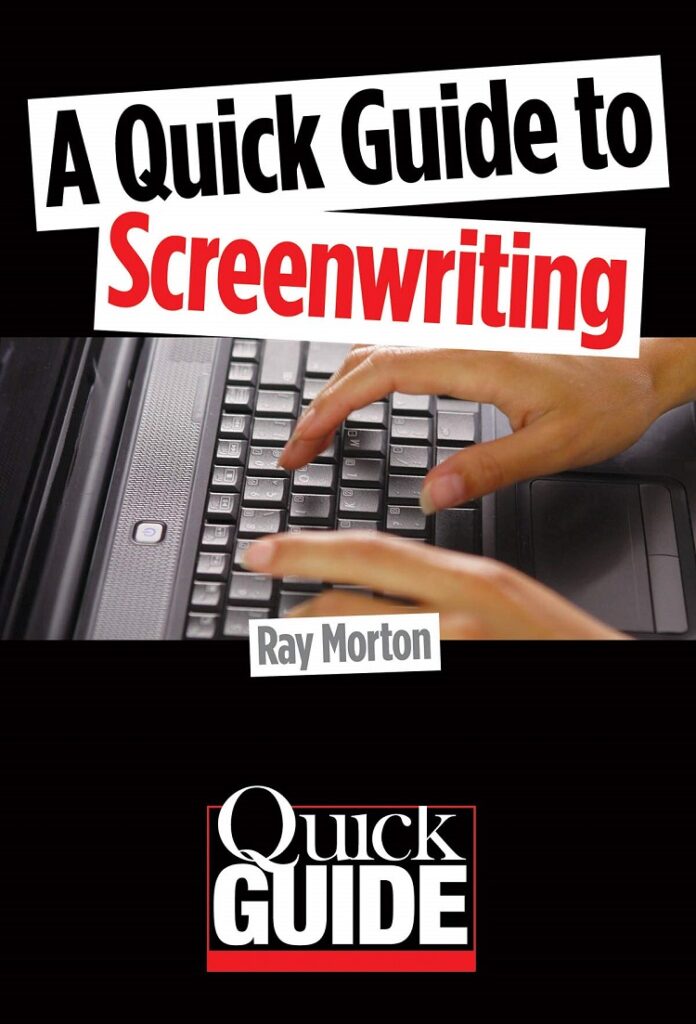
Just about everybody I know has said words to the effect of “I could write a better movie than that!” – usually after seeing a particularly bad film. Actually doing it is an entirely different matter however. Writing a screenplay is something I have always been curious about, but had no idea of where to even start. As if to answer my questions, there is a new book titled A Quick Guide to Screenwriting by Ray Morton. His 102-page guide is exactly what it says it is, a quick read that lays out the basics in a very easy to follow manner.
As I think Mr. Morton would agree, his book provides a very broad overview of the topic. The first chapter is titled “What Is a Screenplay?” and offers a paragraph apiece about what he considers to be the three types: “Spec,” “Assignments,” and “Auteur” scripts. I found it interesting that the entire world of screenplays can be broken down into these three categories, and they say a lot about his approach to the subject. To be honest, they really break down into two categories, original, or assigned. If you have been previously successful, your original script is by an “auteur,“ if you are just starting out, you are doing it on spec. Assigned is assigned. Like I said, it is a broad view.
The remaining nine chapters are: “A Brief History of Screenwriting,” “Ideas,” “The Premise,” “Constructing the Plot,” “Additional Storytelling Elements,” “Some Essential Principles of Screen Storytelling,” “Screenplay Format, Style, and Length,” “The Screenwriting Process,” and “After the Script is Finished.”
Of all of these, I found “Some Essential Principles of Screen Storytelling,” and “Screenplay Format, Style, and Length” to be the most useful. These two chapters actually lay out some of the fundamental basics that a would-be script-writer really needs to know. All in all, I found this book to be an enjoyable read, and a very quick one as well. I really do not know if it was designed to do this or not, but my feeling is that once a budding writer has read this Quick Guide, they will have a better grasp on whether they wish to pursue the topic any further.
Reading A Quick Guide to Screenwriting will not automatically turn you into the next Martin Scorsese or even Joe Esterhaus, but it is a good start. It is an enjoyable new release in the Quick Guide series from Limelight Editions books, who offer quite a number of other, very intriguing books about the cinematic arts as well.